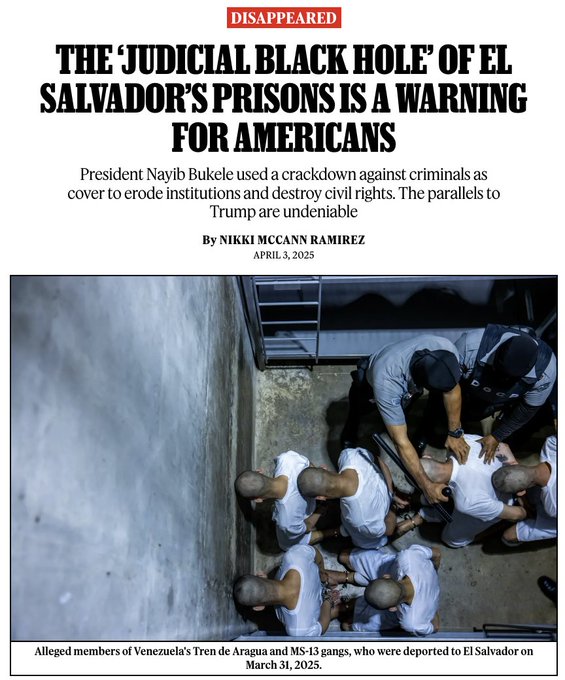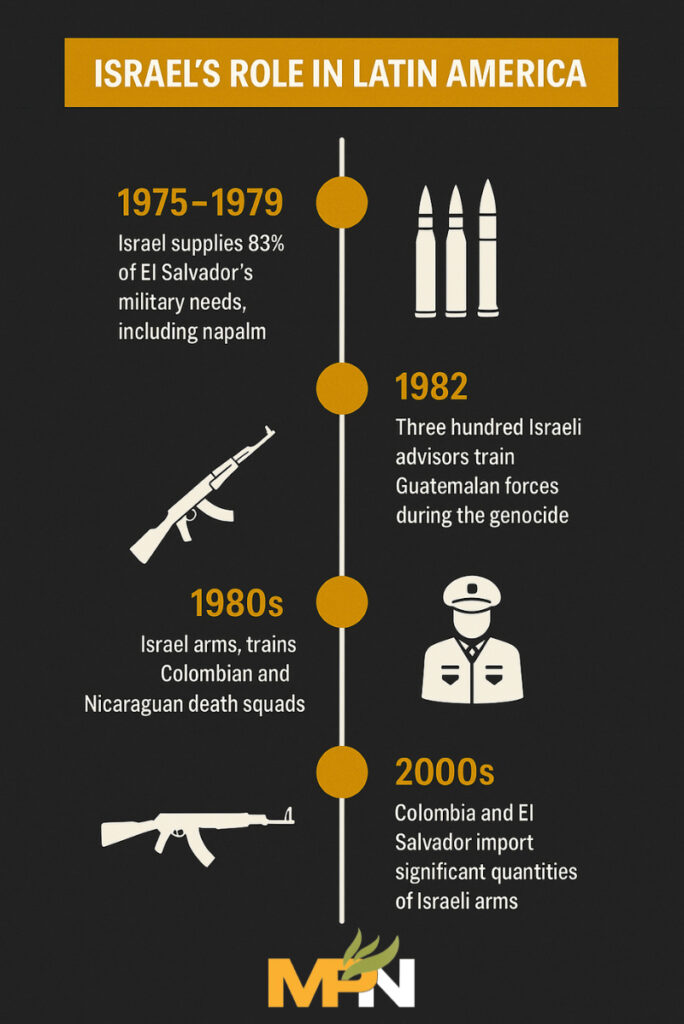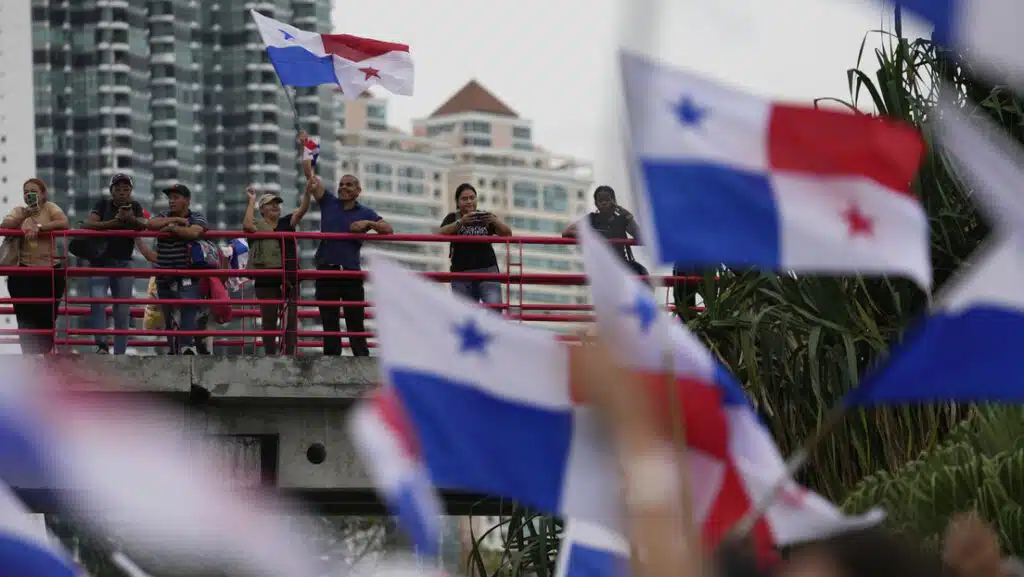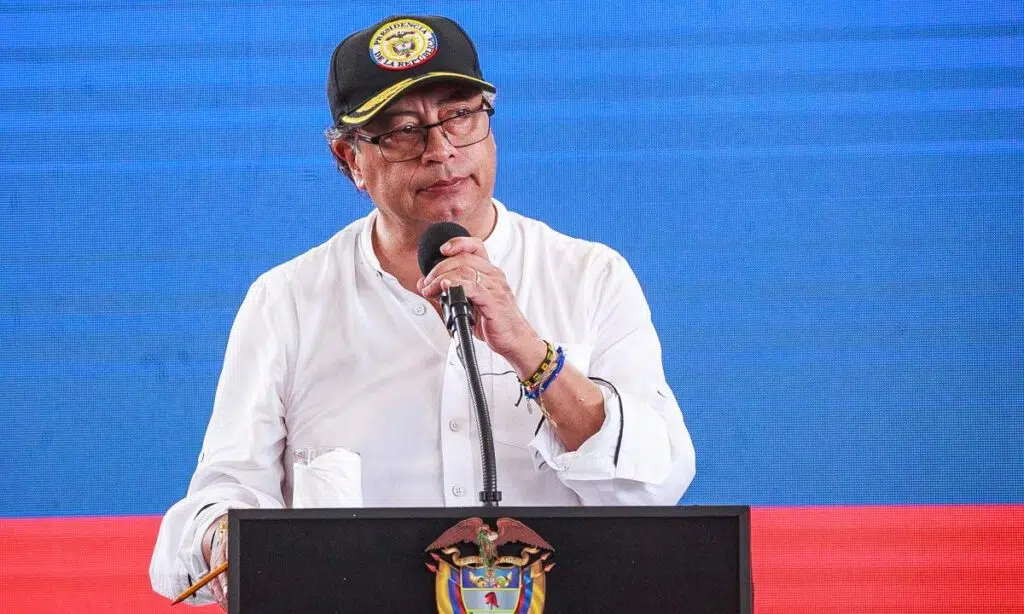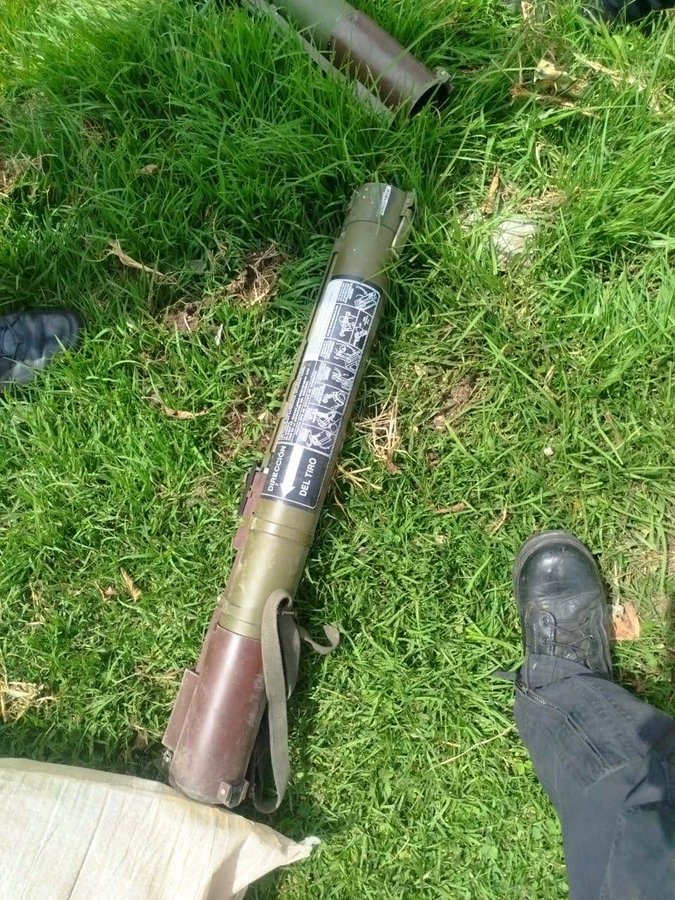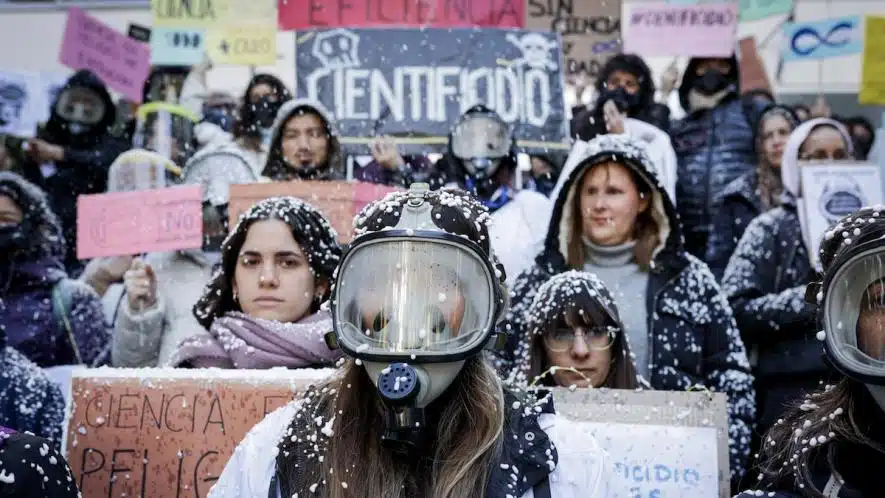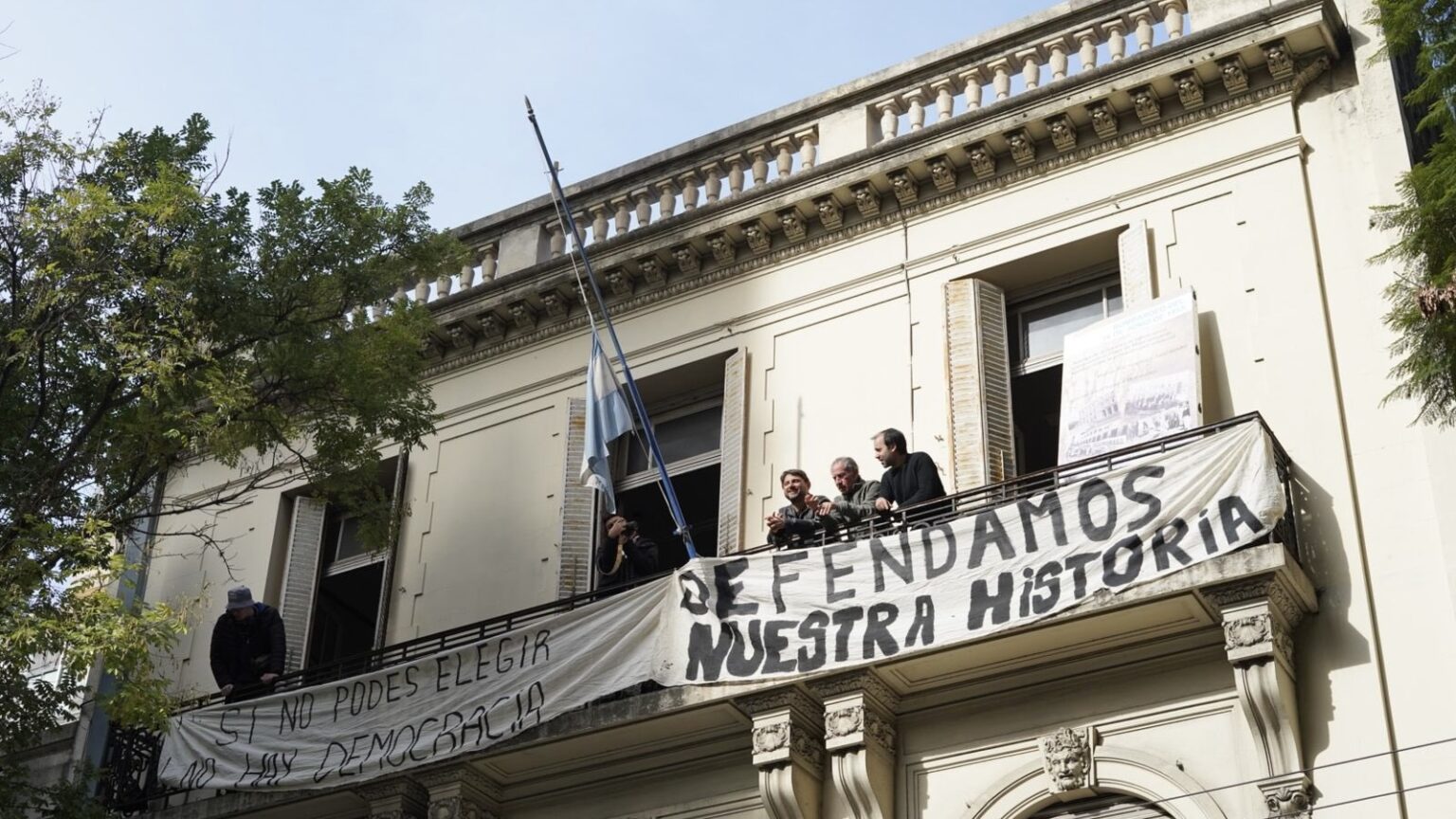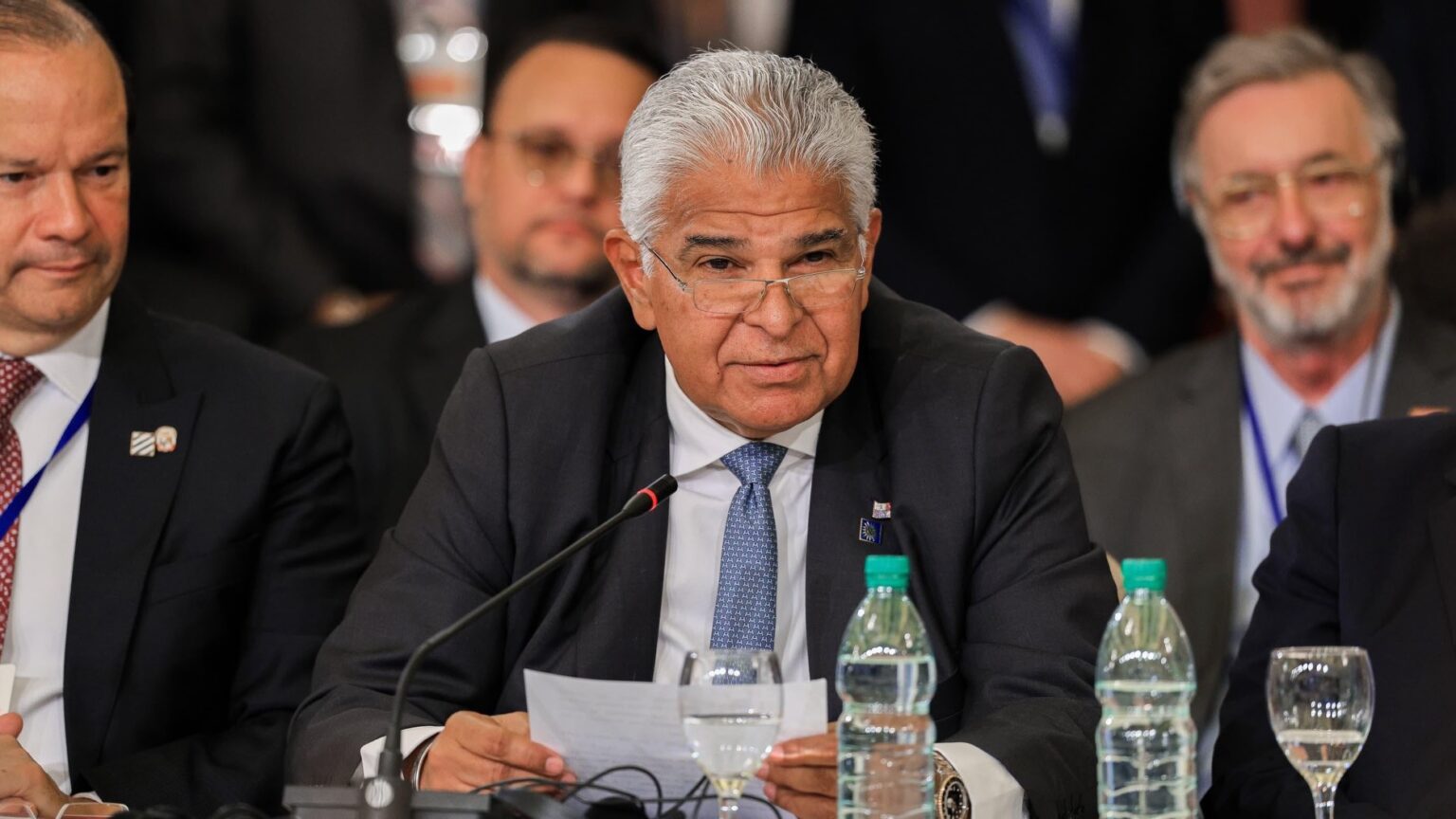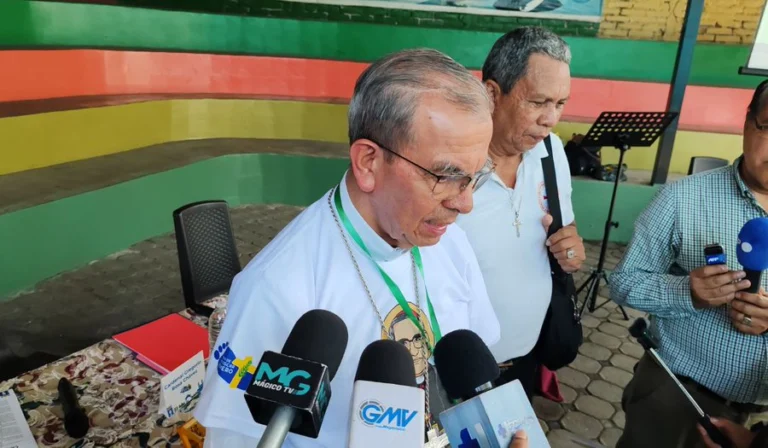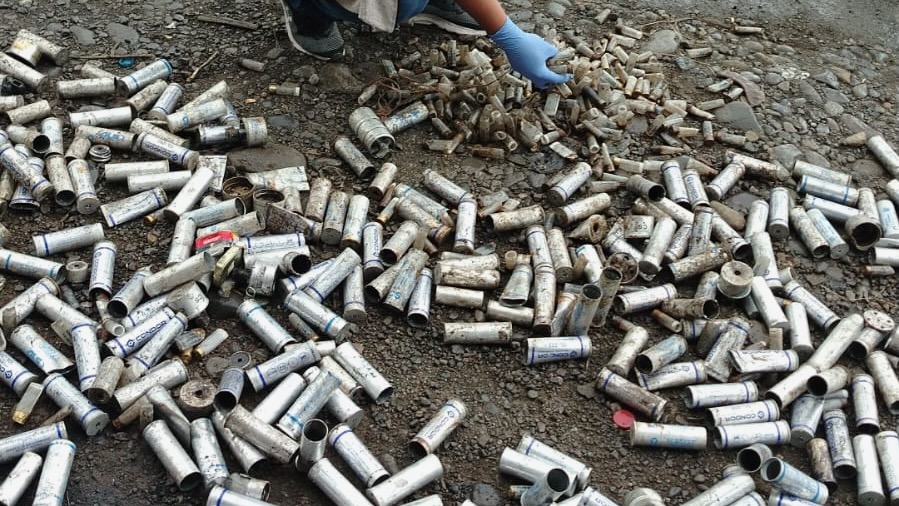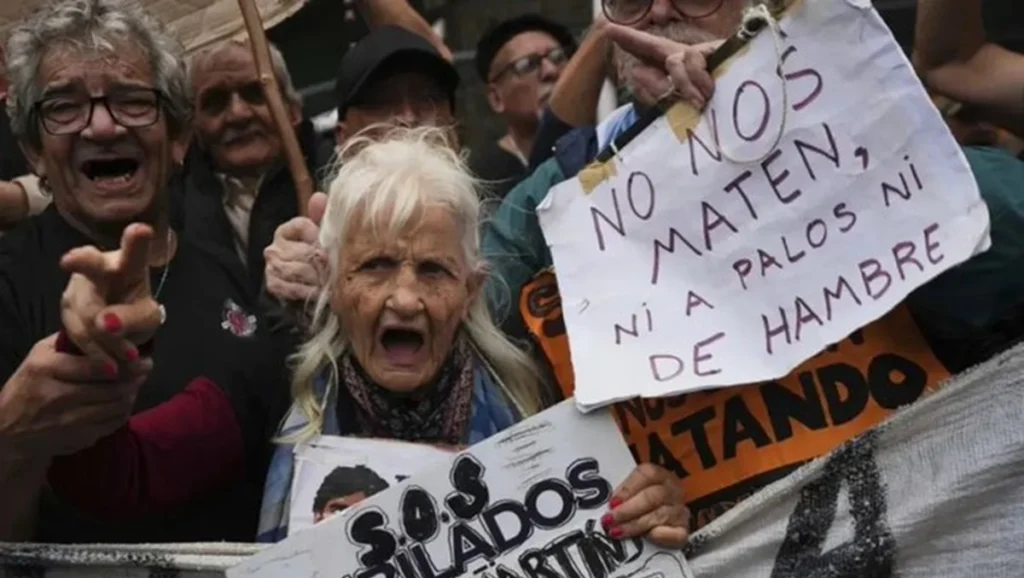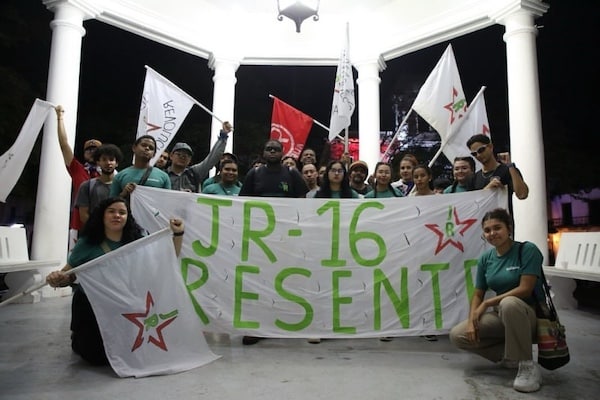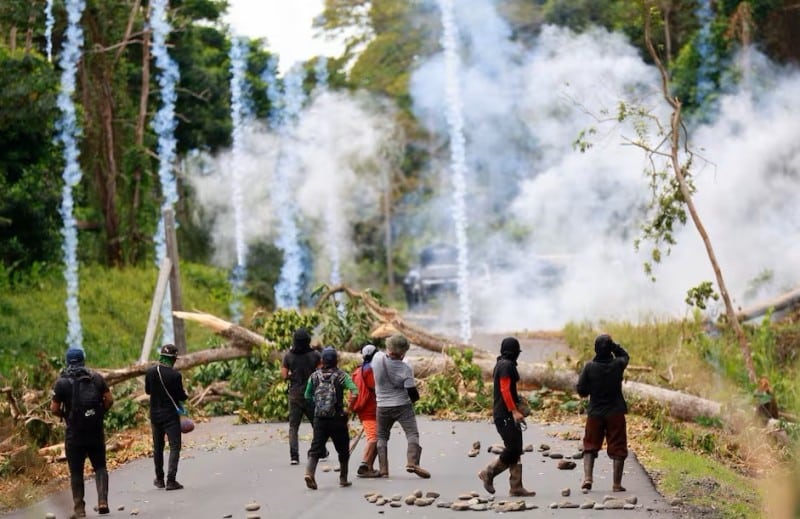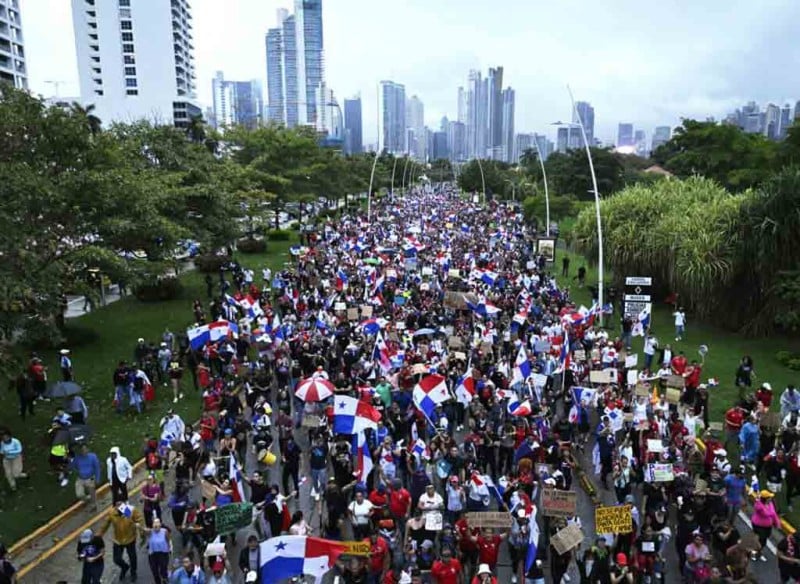May 15, 2025

Bolivia's Senate President Andrónico Rodríguez (right), with former President Evo Morales (left). Photo: Infobae/File photo.
Caracas (OrinocoTribune.com)—Bolivian President Luis Arce has announced that he will not be running for re-election in the coming general elections, scheduled for August 2025. His decision comes amid growing political tensions with former president Evo Morales, who was recently expelled from the ruling party, MAS-IPSP.
“I will not be a factor in dividing the popular vote,” Arce said during a nationally broadcast speech this Tuesday, May 13, “much less will I facilitate the realization of a fascist right-wing project that seeks to destroy the Plurinational State, with which they seek to destroy the productive socioeconomic model.”
In his address, President Arce referred to the “extreme polarization in the electoral landscape” and emphasized the need to confront the neoliberal model. “I reaffirm that unity is the only way to save the Plurinational State.”
Arce also urged Evo Morales to step aside and not run in the upcoming elections, proposing Senate leader Andrónico Rodríguez as a potential unity candidate for the left. Early on Wednesday, Morales rejected Arce’s proposal on social media: “Only the people can ask me to decline my candidacy. We have no personal ambitions. We will obey the mandate of the people to save Bolivia once again.”
Although Rodríguez, who currently presides over the Senate, had been leading in pre-election polls, it remained unclear until recently whether he would run. He had initially resisted pressure from his mentor, Evo Morales, who wants to return to power despite legal maneuvers to disqualify him from running. On Saturday, however, Rodríguez decided to run independently, causing significant political upheaval in Bolivia.
Andronico’s response
On Wednesday, Andrónico Rodríguez reaffirmed his intention to run for president, expressing his “commitment to true and transparent unity, built with the people in mind, and not through shady deals or agreements made behind their backs.”
On social media, Rodríguez lamented that “the overreach, the abuse of power, the cases of corruption, the imprisoned peasant brothers, the incessant accusations and attacks, the division of social organizations, and the mobilizations for and against have eroded [the party’s] organic, political, and institutional credibility.”
He added that “a radical change is necessary,” and that despite all the issues facing the country that he described earlier, “we will maintain our political consistency and coherence.”
From this, he made “a sincere call for unity within the national popular bloc, appealing primarily to our organizations and social sectors, rather than to a political leadership that has lost touch with the grassroots.”
His statements came after two other events that have shaped the polarized political scene in recent hours: President Luis Arce’s resignation from his presidential candidacy, and former President Evo Morales’ rejection of Arce’s request to drop his campaign.
Although Rodríguez was already well-known before 2019, it was on that date—the year of Morales’s overthrow—that he rose to the forefront of national politics, leading the resistance against Jeanine Áñez’s de facto government.
To reward his courage and composure, the MAS cadres who remained in Bolivia nominated him as their vice-presidential candidate, but Morales opposed it from exile. Rodríguez instead became a senator for Cochabamba, and, shortly after, president of the chamber. He remained in this position throughout that period.
Armed with a moderate and unity-focused approach amid the MAS split, Rodríguez remained aligned with the Evo faction, without clashing head-on with President Arce and his followers. Until recently, there was speculation that he could be Arce’s running mate on the official MAS ticket, which, by court ruling, now answers to Arce.
Because of this, some analysts speculate that Arce’s move might be a maneuver to displace Morales and impose a candidate that might have better chances to win, while thwarting Evo Morales’ attempts to return to the presidency.
https://orinocotribune.com/bolivias-pre ... rodriguez/
The 18th Brumaire of Javier Milei
May 14, 2025
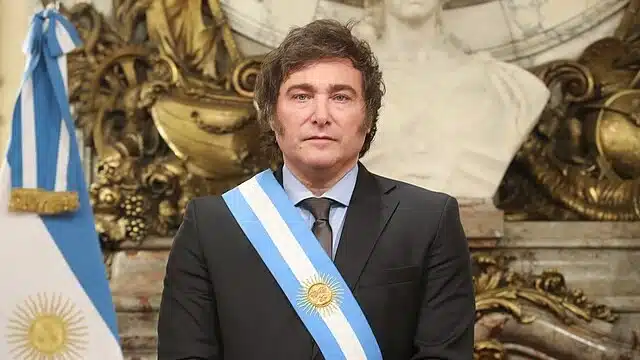
Javier Milei in the White Room on the day of his swearing-in. Photo: Wiki Commons.
By Jorge Coulon – May 11, 2025
If Louis Bonaparte emerged from the impotence of the Republicans, Javier Milei rises above the collapse of the Argentine political system.
“History repeats itself: first as tragedy, then as farce”
–Karl Marx, The Eighteenth Brumaire of Louis Bonaparte
From tragedy to farce, from farce to grotesque
If Marx had lived to see the 21st century, he might have added a third form: grotesque comedy, or worse, self-parodying farce with special effects and private sponsorship.
Napoleon Bonaparte seized power as a tragic figure, sword in hand, backed by armies and the glory of a republic in ruins. Louis Bonaparte imitated him as a caricature: without epic, without ideas, but with a surname and plebiscites. Javier Milei, on the other hand, needs no sword or lineage: all he needs is a Twitter account, a stuffed animal, and the promise to blow everything up.
Is he president because of his program? No. Because of his ability to articulate a social majority? No. He is president because he embodies pure hatred of politics, a desire to raze everything to the ground in the face of the decomposition of everything that came before.
And so, what Marx called “farce” has today become libertarian horror comedy, where the powers of the state are not concentrated in an imperial palace, but in the algorithm that rewards the most viral cry.
The new Bonaparte does not ride a white horse, but a streaming stage, amid the barking of imaginary dogs and harangues against “the caste”.
We are witnessing an experiment that is as Argentine as it is universal: a formal democracy that destroys itself with applause, voting for those who promise to annihilate it in the name of the “free market”, as if the market were a jealous and vengeful god demanding human sacrifices in exchange for stability.
Milei or algorithmic Bonapartism
Louis Bonaparte came to power in 1851, promising order, stability, and past glory. He had no ideas of his own, but he did have a symbolic legacy: the Bonaparte surname, a distant echo of the Empire. His strength lay not in his thinking, but in his image: the emperor’s nephew, the “providential man”.
Javier Milei also lacks new ideas, but he offers a powerful image: the lion roaring against “the caste”, the economist shouting truths on television programs, the furious outsider who promises to destroy the state as an act of national redemption.
But where Bonaparte had sabres and soldiers, Milei has cameras, likes, bots, and influencers. His army is not regiments, but algorithms that guarantee him visibility; he does not take power by storm, but by engagement.
He is the first Argentine president entirely manufactured in the age of digital spectacle, the son of prime-time television and memetic radicalization. His language does not seek to convince, but to go viral. He does not articulate majorities: he encapsulates them emotionally.
In the 19th century, Bonapartism was the authoritarian response to the ruling classes’ fear of the mobilized people. In the 21st century, Mileism is the libertarian and kitsch version of that fear: a nihilistic response to the crisis of representation.
Its promise is not to reform, but to destroy. Its program is not liberal, but destructive. And yet it embodies faith in something sacred: the Market, that higher entity that sees everything, balances everything, punishes everything.
Louis Bonaparte concentrated power in himself like a modern Caesar. Milei does the same, but transformed into a creature of the algorithm, with the aesthetics of a libertarian superhero and messianic rhetoric.
Thus, as a tragic and comic paradox, the man who proclaims himself the defender of freedom sits on a mountain of decrees, insults Congress, and proposes to reduce politics to a single will: his own.
The ruins of Peronism (which still holds up the roof of the country)
If Louis Bonaparte emerged from the impotence of the Republicans, Javier Milei rises above the collapse of the Argentine political system, and especially the vital contradiction of Peronism: being, at the same time, the most eroded… and the most solid.
For decades, Peronism was more than just a party: it was a national-popular matrix, a bridge between the state and the people, between social justice and governability. But time, continuous power, and a lack of renewal turned it into a structure more concerned with preserving itself than transforming itself.
Today, it does not govern the emotions of the people as it once did, and yet it is the only force that still retains something resembling a national organization, with real ties to neighborhoods, unions, and social movements. While everyone else improvises, Peronism – though weakened – exists.
The irony is fierce: if Peronism is an old, rusty train, the rest of the political system is a broken skateboard or a digital fantasy.
And yet, that existence is not enough. Because the people no longer feel represented by those who claim to speak on their behalf, and their discontent, once capitalizable in votes, has become a boomerang. Milei did not invent anything: he merely channeled the political failure of all those who promised a future and delivered misery.
Can Peronism reinvent itself as a tool of the people, or is it doomed to be nothing more than a fossil of the 20th century? That is the question hanging over every corner of Argentina as the lion roars and the country shrinks.
The proletariat without a voice, without a party, and without a center
In The Eighteenth Brumaire, Marx pointed out that the French peasantry was a scattered, isolated class, without self-awareness, and therefore “represented” by others, such as Bonaparte. Today, in Milei’s Argentina, that role is played by an even more fragmented figure: the precarious worker, the intermittently unemployed, the indebted self-employed, the single mother with three apps on her cell phone to survive.
Where is the proletariat today? It is in the kitchens of Rappi, in the markets, in the bankrupt cooperatives, in the neighborhoods without sewers, in the collapsed hospitals, in the schools without heating. It is there… but it no longer has a collective voice.
The unions – the backbone of old Peronism – have lost touch with the new social composition of labor. In many cases, they are guardians of privileges; in others, they are mere shadows of their former selves. The left, for its part, often speaks on behalf of the people, but without the people inside. There is little walking in the streets, assemblies have become ritualized, and epic rhetoric is repeated as empty slogans.
As Marx would say, the proletariat cannot emancipate itself without organizing, but organization requires more than acronyms: it requires listening, presence, and the construction of real power.
Milei does not need to represent the proletariat: it is enough for him to disfigure it. He calls them “planeros” (welfare recipients), “parasites”, “subsidized caste”, and throws the blame for the deficit on their shoulders. And without a voice of their own, the people end up consuming their caricature rather than inhabiting their reality.
Even so, beneath the surface, there are small pockets of resistance: soup kitchens, care networks, popular libraries, cooperatives, and neighborhood cultural spaces.
They are not enough for a political alternative today, but they keep alive an organized dignity, a hope that has not yet been completely demolished by the chainsaw.
Can a new collective subject be reborn from there? Or will we continue to be a society where everyone fights alone, while those in power laugh from the stage?
The cult of the market as a new religion (with Gendarmes in the sacristy)
If the 19th century consecrated the emperor and the army as guarantors of order, the 21st century, in its Argentine version, has enthroned the market as an absolute, sacred, unquestionable deity. Javier Milei does not govern: he officiates. And what he officiates is not public administration, but a liturgy of austerity.
The fiscal deficit is a sin. The state is blasphemy. And austerity is a ritual of collective purification.
But unlike the prophets of old, this new priest needs a truncheon.
Because the libertarian faith is not shared by the people who suffer under it. Pensioners march, teachers organize, scientists protest, students occupy universities. And the only response is repression.
Patricia Bullrich – a key figure in Milei’s apparatus – understands this well: there is no chainsaw without riot police, no “freedom” without protocol, no market without discipline. Where there is no consensus, there is the truncheon. Where there is no obedience, there is tear gas.
Milei shouts “Long live freedom, damn it!” while deploying federal forces against those who can’t even afford the bus. Just as Louis Bonaparte needed the army to quell Paris, libertarian Bonapartism needs Bullrich to repress Córdoba, Rosario, Jujuy, or any corner where the people say “enough”.
And all this in the name of an idea that is not debated, because it is no longer political: it is theology. The market is the new religion of the powerful. Its evangelists are in the consulting firms, its inquisitors in the media, and its crusaders in the Casa Rosada. Social justice is not debated: it is ridiculed. Protest is not addressed: it is criminalized. Dissent is not heard: it is gassed.
And in the meantime, the economy adjusts, rights are liquefied, and democracy shrinks.
And after the comedy? The open ending of a nation
Marx wrote The Eighteenth Brumaire as a warning and an anatomy of failure. He did not celebrate Bonaparte’s rise, but neither did he dwell on melancholy: he analyzed in order to anticipate, to awaken, to prepare for the next wave.
Today, faced with this new “Bonapartism with memes”, many feel that history has become a farce with no way out. That there is no longer a subject, no party, no epic possible. But is it true that all is lost?
What if resistance is not at the top but at the margins? In neighborhood assemblies, in awakening unions, in shared books, in community radio stations, in the marches of retirees who have nothing but give everything. What if culture, poetry, affection, and memory still hold seeds?
Because a chainsaw can cut down trees, but it cannot cut roots. And the Argentine popular roots – that mixture of struggle, irony, memory, and tenderness – have survived dictatorships, hyperinflation, and exile.
Milei will pass. Just as Cavallo passed, just as Menem passed, just as so many heralds of the end of the public sphere passed.
But history remains a battleground. And even though algorithms rule today, life continues to be woven into the fabric of everyday life: in shared mates, in songs sung in the square, in crowded classrooms, in poems read aloud.
There may not be another October 17 on the horizon. But there may be hundreds of small acts of dignity that, together, will begin to build another narrative.
Because history – like poetry – does not repeat itself: it is rewritten.
https://orinocotribune.com/the-18th-bru ... ier-milei/
First Videos of Abductees in El Salvador’s CECOT Prison Create Uproar in Venezuela
May 14, 2025

Deported inmates demanded freedom while Matt Gaetz and a bipartisan delegation visited the CECOT prison in El Salvador. Photo: AFP.
The Venezuelans held in CECOT shouted at the bipartisan U.S. Congressional delegation: “Freedom, freedom, we want freedom! We have been abducted.”
The first videos of Venezuelan migrants held captive at the Terrorism Confinement Center (CECOT) in El Salvador have emerged on social media. It is the first footage of them to appear since March 17 this year, following their expulsion by the Donald Trump administration. The captives have had their fundamental rights violated by the denial of legal defense and due process.
According to information published by Iguana TV, referring to the X account of journalist Madelein García, the Venezuelans who have been held captive for almost two months and stigmatized as criminals shouted: “Freedom, freedom, we want freedom! We have been abducted,” during a visit by a bipartisan delegation from the US Congress.
#URGENTE| primeras imágenes de los migrantes venezolanos en la cárcel del CECOT en El Salvador gritan a las autoridades estadounidenses, una delegación bipartidista del congreso que visita el centro “libertad libertad, queremos libertad estamos secuestrados”, se escucha decir a… pic.twitter.com/E2BILiqYv3
— Madelein Garcia (@madeleintlSUR) May 13, 2025
In addition, it can be seen in the video that several of the Venezuelan migrants are simultaneously making a hand gesture calling for help, which consists of holding up their palms while opening and closing their fingers over their thumbs.
García reports that at that precise moment, politician Matt Gaetz, who until last year was a member of the United States House of Representatives and a staunch defender of President Donald Trump’s anti-immigrant policies, was at the detention center.
The journalist added that “some mothers have been able to identify their children. They already have hair, they’re in a separate cell block from the Mara gang members, but in the same place, stigmatized as criminals.”
It may be noted that this isn’t Gaetz’s first time visiting CECOT and that he was a candidate to head the Department of Justice during Donald Trump’s second term.
Confirmation of Gaetz’s repeated visits to the CECOT is evidenced by an April 25th article on the Independent website titled: “Matt Gaetz visited El Salvador’s mega-prison and saw people drained of hope. He then pitched it to Stephen Miller.” The report highlights that Gaetz presented the idea of sending migrants to CECOT to Trump’s deputy chief of staff.
https://orinocotribune.com/first-videos ... venezuela/
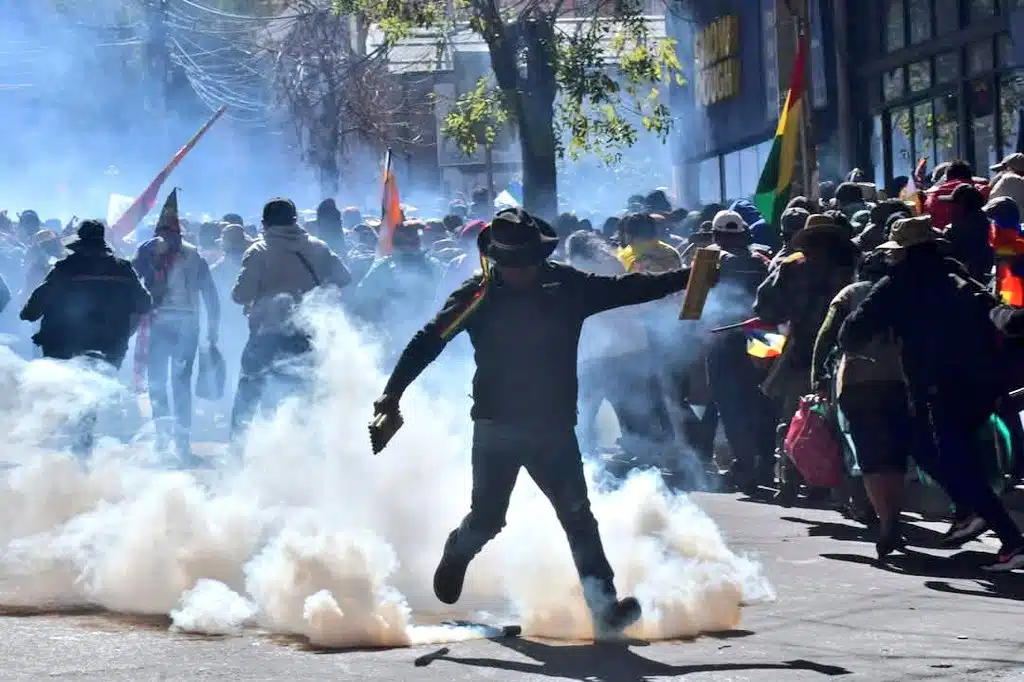
 ]
]




